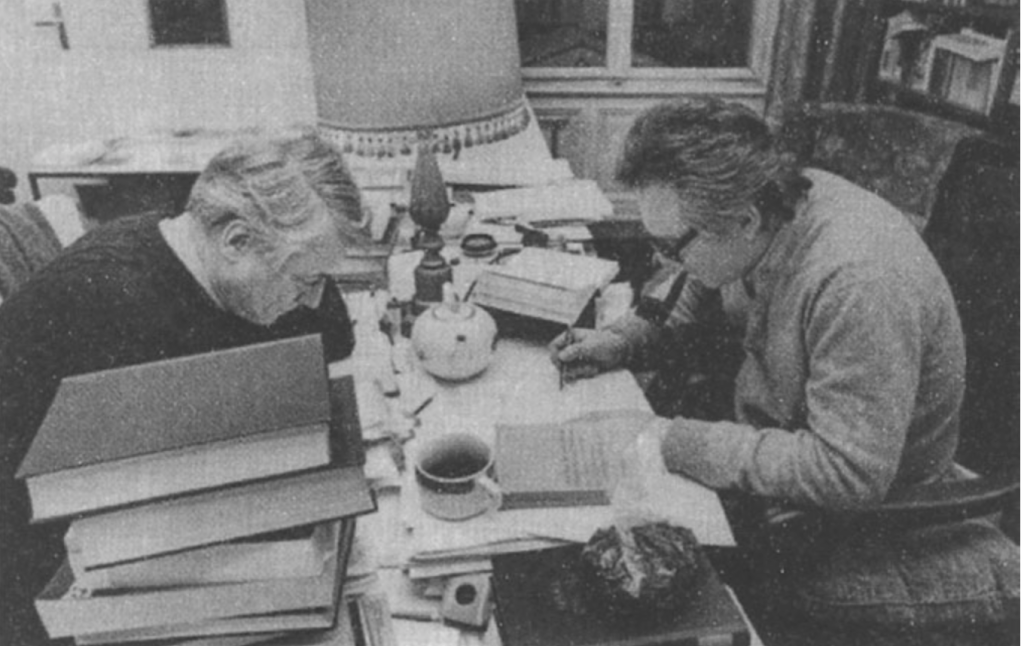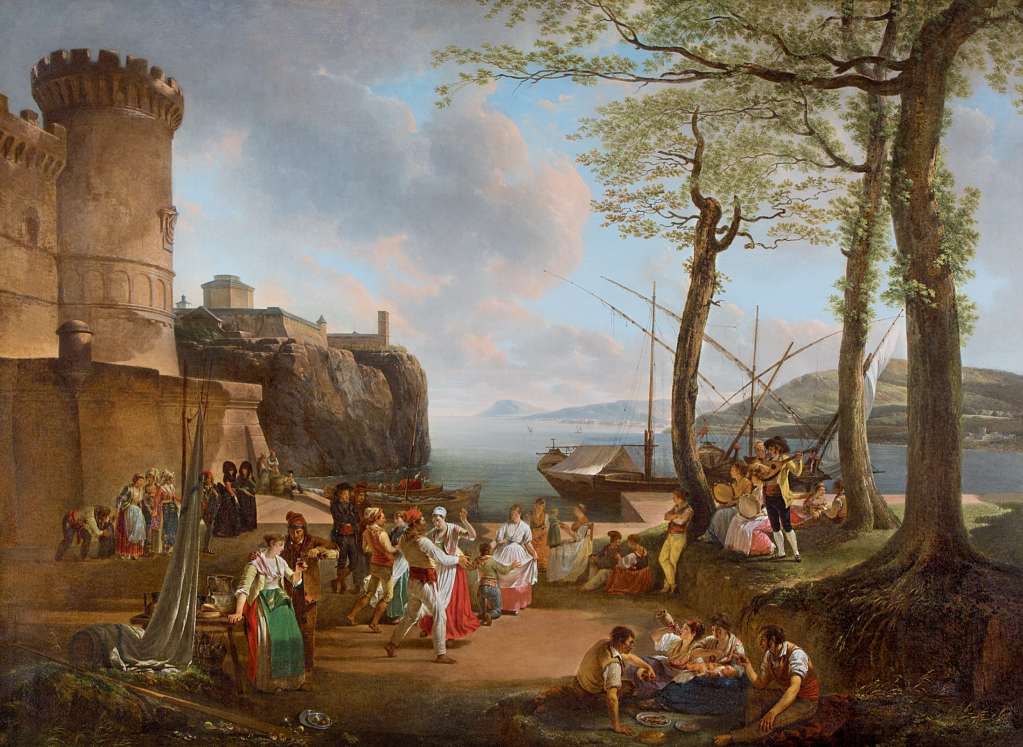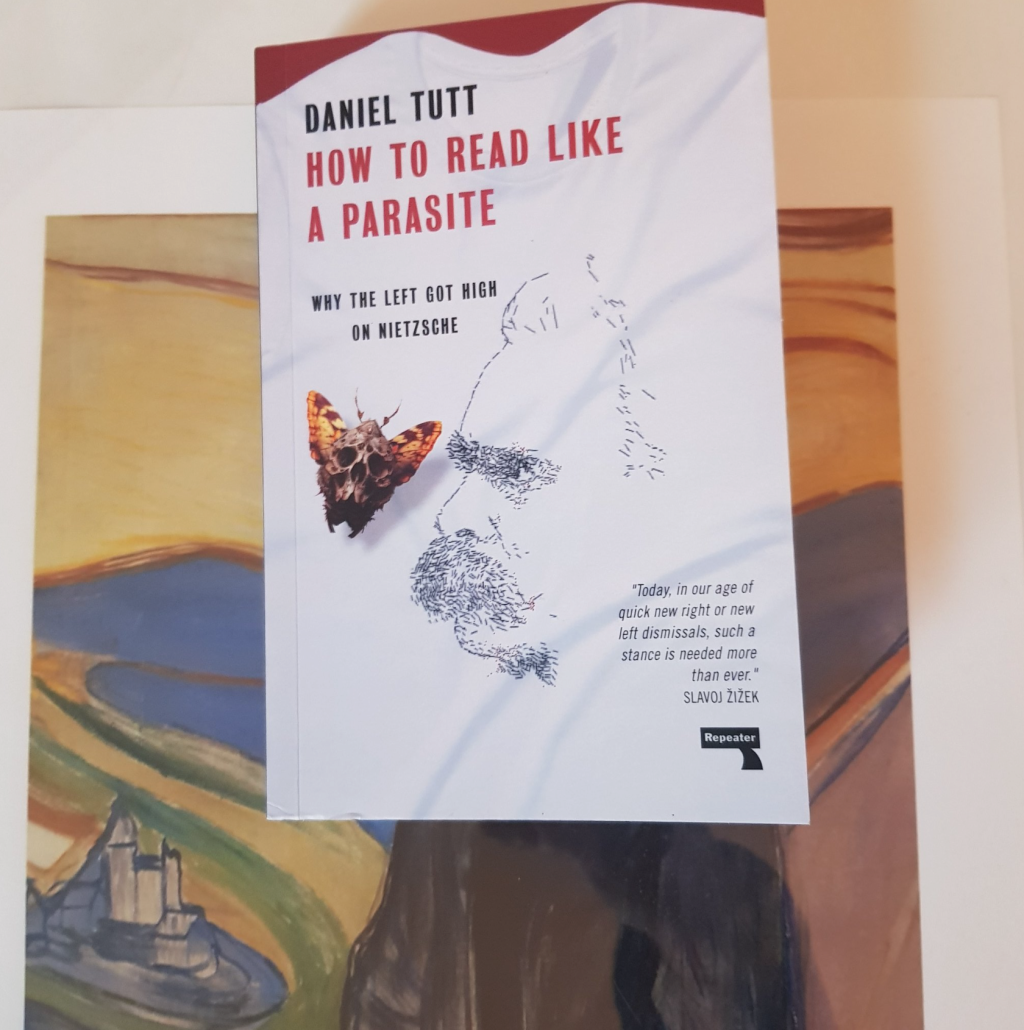I have a new essay on Wael Hallaq’s book, The Impossible State: Islam, Politics, and Modernity’s Moral Predicament at the very excellent publication Society for Contemporary Thought and the Islamicate World (http://sctiw.org/sctiw_review) coming out on February 10th.
My main interest in this essay, in addition to reviewing the book, is to start a dialogue with Islam and continental philosophy and to critique Hallaq’s use of communitarian ethics and virtue ethics. Here is an excerpt (below) and you can read my full essay here.

Thinking Islamic Governance with Continental Philosophy
One area where Hallaq can find additional connections to western traditions of ethics and philosophy is in the philosophy of community found in thinkers such as Jean-Luc Nancy, Roberto Esposito, Giorgio Agamben, and Ernesto Laclau. This rich set of thought offers conceptual resources for thinking about the crisis of modernity as well as Islamic governance. While Hallaq does not avoid the Continental tradition outright as his references to Foucault and Schmitt amply show, there is a more general resistance between Continental and contemporary Islamic thought. In many ways, this resistance is not surprising as most Continental thinkers are avowed atheists, Continental thought tends to de-privilege the domain of the moral in its ethical frameworks, and, many Continental thinkers have moved beyond metaphysical conceptions of the subject.
Despite these differences, Hallaq’s argument can find theoretical synergy in works such as the Inoperative Community, where Nancy thinks community as, similar to the Sharī‘a model, coming about before the law and sovereignty. For Nancy, the sphere of the political, or what he calls “being-together,” is brought about through a decision that eschews the Schmittian state of exception, as it is not built around the establishment of the sovereignty or a social contract, but rather, a decision is as Nancy states, “existence as such, and existence, inasmuch as it does not take place for one alone or for two but for many, decides itself as a certain in of the in-common.”3 Decision consists precisely in what the community, or the ‘we’ have to decide on, in and for our world, and thus, first of all, to decide on the ‘we,’ on who ‘we’ are, we have to first decide how we call ourselves a ‘we.’ Unlike the communitarian question of belonging, Nancy’s thinking on community argues that we must think community as a demand beyond idenitarian models, a thinking that must also abandon any thinking of the subject. The invocation of a non-idenitarian community is also present in Agamben’s Coming Community through his reading of St. Paul,4 and it bears questioning the extent to which the Muslim umma can think community beyond the categories of cultural, racial and ethnic identity.
The very idea of community is inoperative for Nancy because the beings (subjects) that inhabit the community do not arise out of the diversity of a community, but arise out of a singular being that is always other. As Nancy writes in the Inoperative Community, “a community is not formed when a set of previously independent and self-sufficient beings unite and form a collective enterprise, as say, social contract theorists would have it.”5 In order for the community to have an identity that is immanent to it, it needs to be brought out and put to work, which means that while the community is inoperative, it is also producible. The community-as-subject means that the community is developed through work. The community is inoperative precisely because “it contains no subjects, it is idle, because it lacks an essence that can be put to work.”6 Nancy’s finite community strikes many points of similarity with the ideal pre-modern Sharī‘a umma, as it was the umma that performed the work of the larger society, and perhaps his thinking of community can aid contemporary discussions on the Islamic state.
Another area where Hallaq’s work would benefit from a closer connection to Continental thought is around the definition of the moral domain as such. Hallaq defines the lack of any moral center in modern liberalism as a failure of the ‘Is/Ought’ distinction, meaning that the ‘ought’ has been replaced with the positivism of the ‘is’ in modernity. In other words, we have lost the ability to declare ‘ought’ statements with any force of legitimacy in the modern period and have privileged the bare existence of what is. For Continental thought, too, this is a problem; however, the solution for rectifying it is treated in the sphere of the political and not the domain of the moral. Since we do not have a world where the ‘ought’ can be invoked, this changes the very nature of ethics. Ethics, as a discipline of philosophy that thinks a conception of the good life, or eudemonia in the Aristotelian tradition of virtue ethics, cannot be realized, and this inability of ethics to make moral claims places politics, and political interventions in a privileged theoretical position. This tendency has led some to claim that politics now precedes ethics as first philosophy for a wide array of Continental thinkers on the left including Badiou, Nancy, Žižek, Laclau, and Agamben.7 The consequence of politics replacing ethics as first philosophy means that any thinking on community must be pre-political, and politics therefore shifts its relation to ethics. A larger consequence of this theoretical shift is that ethics is no longer about the commitment, care, or duty to the Other, as we find for instance in Heidegger, Levinas, or Derrida, and the ethical turn is overturned, as it were, opening to a new, political turn in ethics. Whether Hallaq can think such a political mode of Islamic governance seems to be unlikely; however, based on the events in the Middle East today, such thinking seems more and more necessary.
3 Jean-Luc Nancy, Politics I and Politics II, in Deconstruction: Critical Concepts in Literary and Cultural Studies, Volume 4, edited by Jonathan Culler (New York and London: Routledge, 2003), 98. Emphasis in original.
4 Giorgio Agamben, The Coming Community, Theory Out of Bounds, Vol. 1, trans. Michael Hardt (Minneapolis: University of Minnesota Press, 1993).
5 Jean-Luc Nancy, The Inoperative Community, trans. by Peter Connor, Lisa Garbus, Michael Holland, and Simona Sawhney (Minneapolis: University of Minnesota Press, 1991), 144.
6 Ibid., 148.
7 Carsten Strathausen, “A Critique of Neo-Left Ontology,” Postmodern Culture, Volume 16, Number 3 (May 2006).



Leave a comment